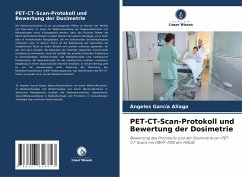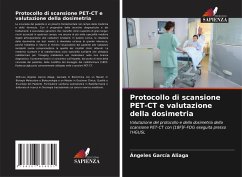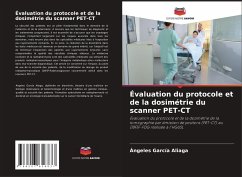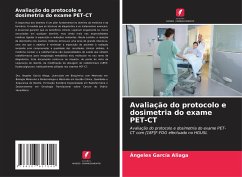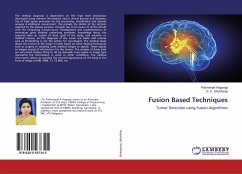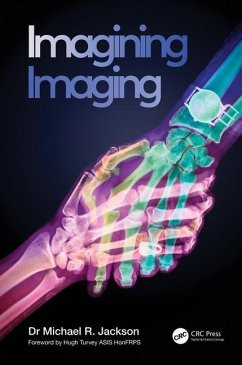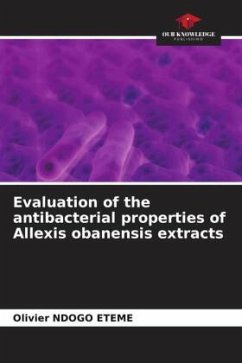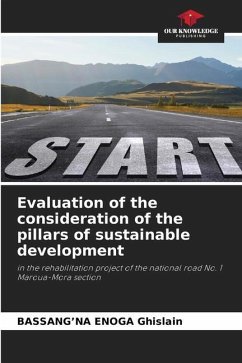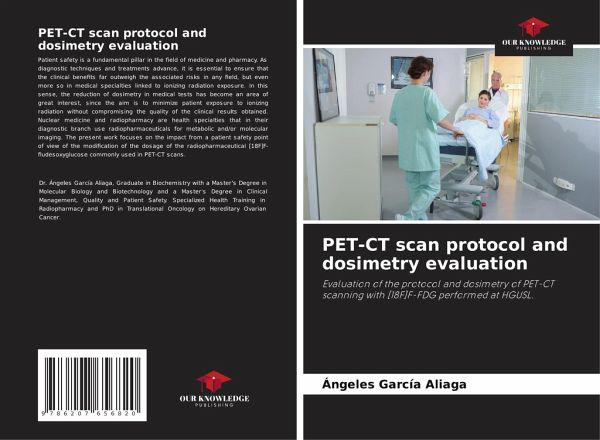
PET-CT scan protocol and dosimetry evaluation
Evaluation of the protocol and dosimetry of PET-CT scanning with [18F]F-FDG performed at HGUSL.
Versandkostenfrei!
Versandfertig in 6-10 Tagen
30,99 €
inkl. MwSt.

PAYBACK Punkte
15 °P sammeln!
Patient safety is a fundamental pillar in the field of medicine and pharmacy. As diagnostic techniques and treatments advance, it is essential to ensure that the clinical benefits far outweigh the associated risks in any field, but even more so in medical specialties linked to ionizing radiation exposure. In this sense, the reduction of dosimetry in medical tests has become an area of great interest, since the aim is to minimize patient exposure to ionizing radiation without compromising the quality of the clinical results obtained. Nuclear medicine and radiopharmacy are health specialties tha...
Patient safety is a fundamental pillar in the field of medicine and pharmacy. As diagnostic techniques and treatments advance, it is essential to ensure that the clinical benefits far outweigh the associated risks in any field, but even more so in medical specialties linked to ionizing radiation exposure. In this sense, the reduction of dosimetry in medical tests has become an area of great interest, since the aim is to minimize patient exposure to ionizing radiation without compromising the quality of the clinical results obtained. Nuclear medicine and radiopharmacy are health specialties that in their diagnostic branch use radiopharmaceuticals for metabolic and/or molecular imaging. The present work focuses on the impact from a patient safety point of view of the modification of the dosage of the radiopharmaceutical [18F]F-fludesoxyglucose commonly used in PET-CT scans.





